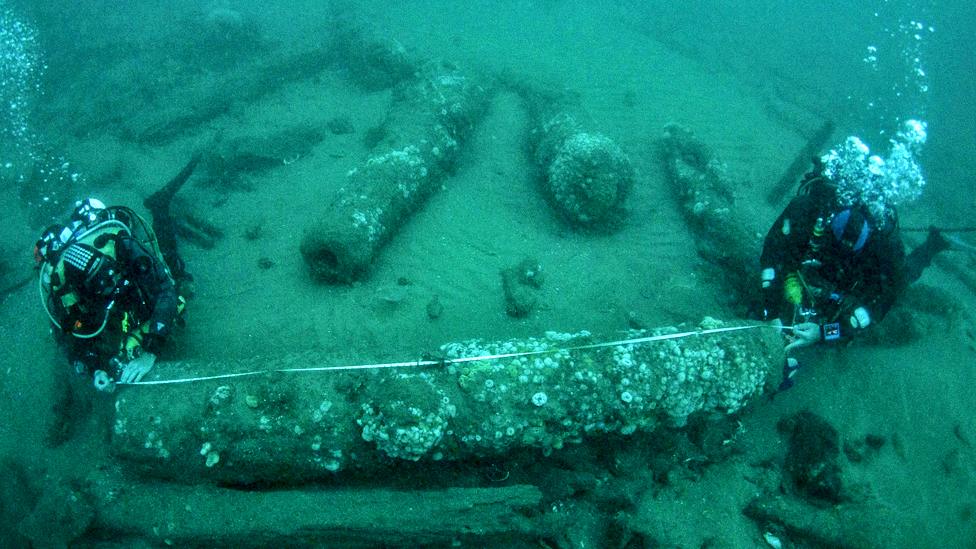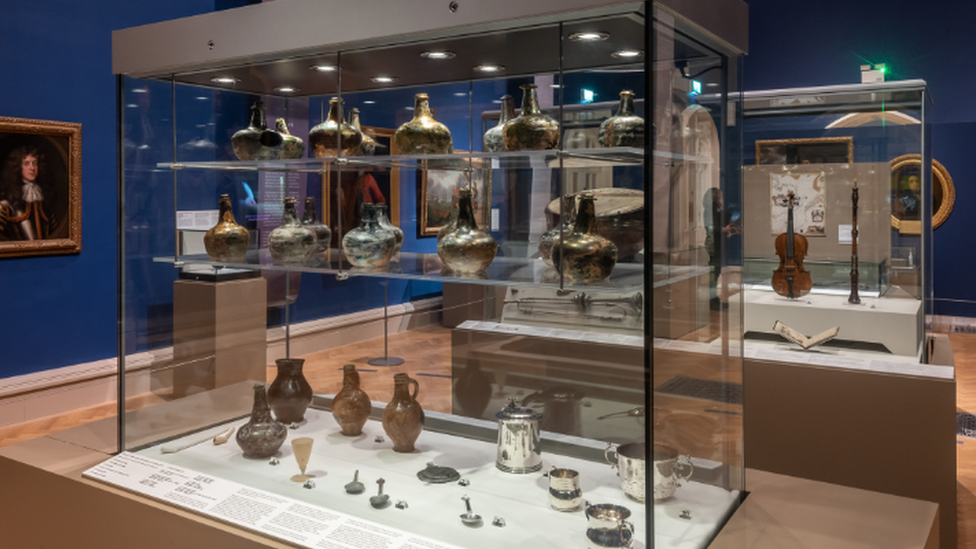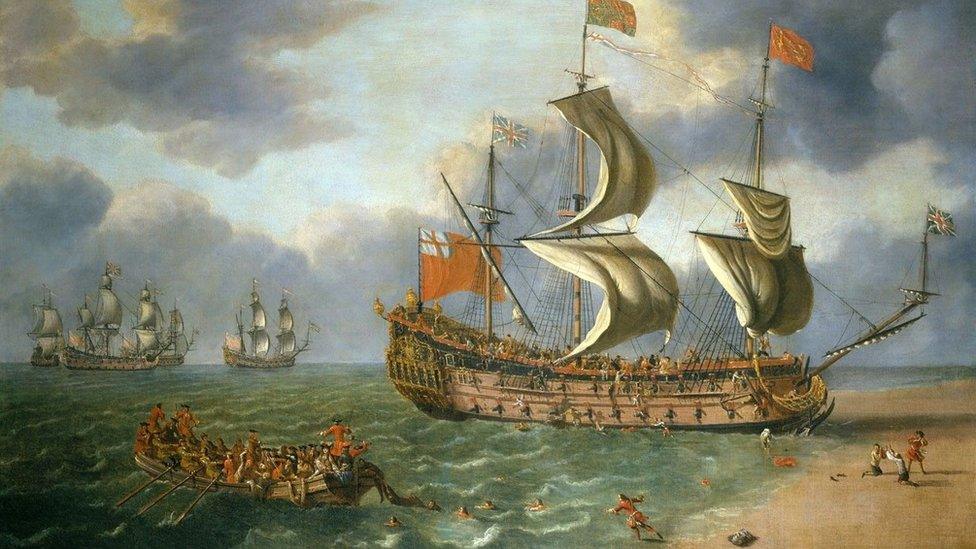Gloucester exhibition at Norwich Castle 'fantastically successful'
- Published

The 340-year-old Gloucester warship was discovered after a cannon was spotted by divers on the seabed
A six-month exhibition into the discovery of "Norfolk's Mary Rose" had been "fantastically successful", a senior curator said.
At least 60,000 people visited The Last Voyage of the Gloucester exhibition at Norwich Castle, external, which closed on Sunday.
The Gloucester sank off the coast of Great Yarmouth in 1682 and almost killed a future king.
Its shipwreck was discovered by divers in 2007 but details of the find were only made public last year.
"It's been wonderful to see how many people have enjoyed the exhibition," said Francesca Vanke, a senior curator at Norwich Museums.
"Shipwrecks are always exciting... just to see items that have been on the seabed for so many centuries coming up to see the light of day, it's been extraordinary."

Wine bottles, the ship's bell and navigational equipment were among items that went on display at Norwich Castle
The discovery of the Gloucester was hailed as one the UK's most important maritime finds.
Speaking at the time, Prof Jowitt, an authority on maritime cultural history and based at Norwich's University of East Anglia (UEA), said: "Because of the circumstances of its sinking, this can be claimed as the single most significant historic maritime discovery since the raising of the Mary Rose in 1982."
On the day it sank, it was carrying the then Duke of York who fled the ship with moments to spare and went on to become King James II of England.
The Gloucester's exact whereabouts remained a mystery until it was discovered 15 years ago half-buried in the seabed 28 miles (45km) out to sea, having sunk while navigating treacherous sandbanks.
Items recovered from the wreck included unopened wine bottles, the ship's bell and navigational equipment, which went on display in Norwich Castle in February.

Johan Danckerts painted the Gloucester running aground on a sandbank off Great Yarmouth, while on its way to Scotland
The Gloucester 1682 Charitable Trust was set up this year to care for the shipwreck and conserve its artefacts.
The trust's chair, General Lord Richard Dannatt, a former head of the British Army, said it hoped to create a museum dedicated to the find.
"Our long-term aim is to have a state-of-the-art presentation of the Gloucester's story and artefacts in Great Yarmouth," he said.
"We need to persuade the Ministry of Defence (MOD) and Receiver of Wreck (RoW) that we are the right body to take this forward. We remain optimistic."
The MOD is the government body that deals with wrecks of military vessels, external within UK territorial waters.
Artefacts from the Gloucester will go into storage until a permanent home is found.

Follow East of England news on Facebook, external, Instagram, external and X, external. Got a story? Email eastofenglandnews@bbc.co.uk, external or WhatsApp us on 0800 169 1830
Related topics
- Published9 August 2023

- Published11 June 2022
